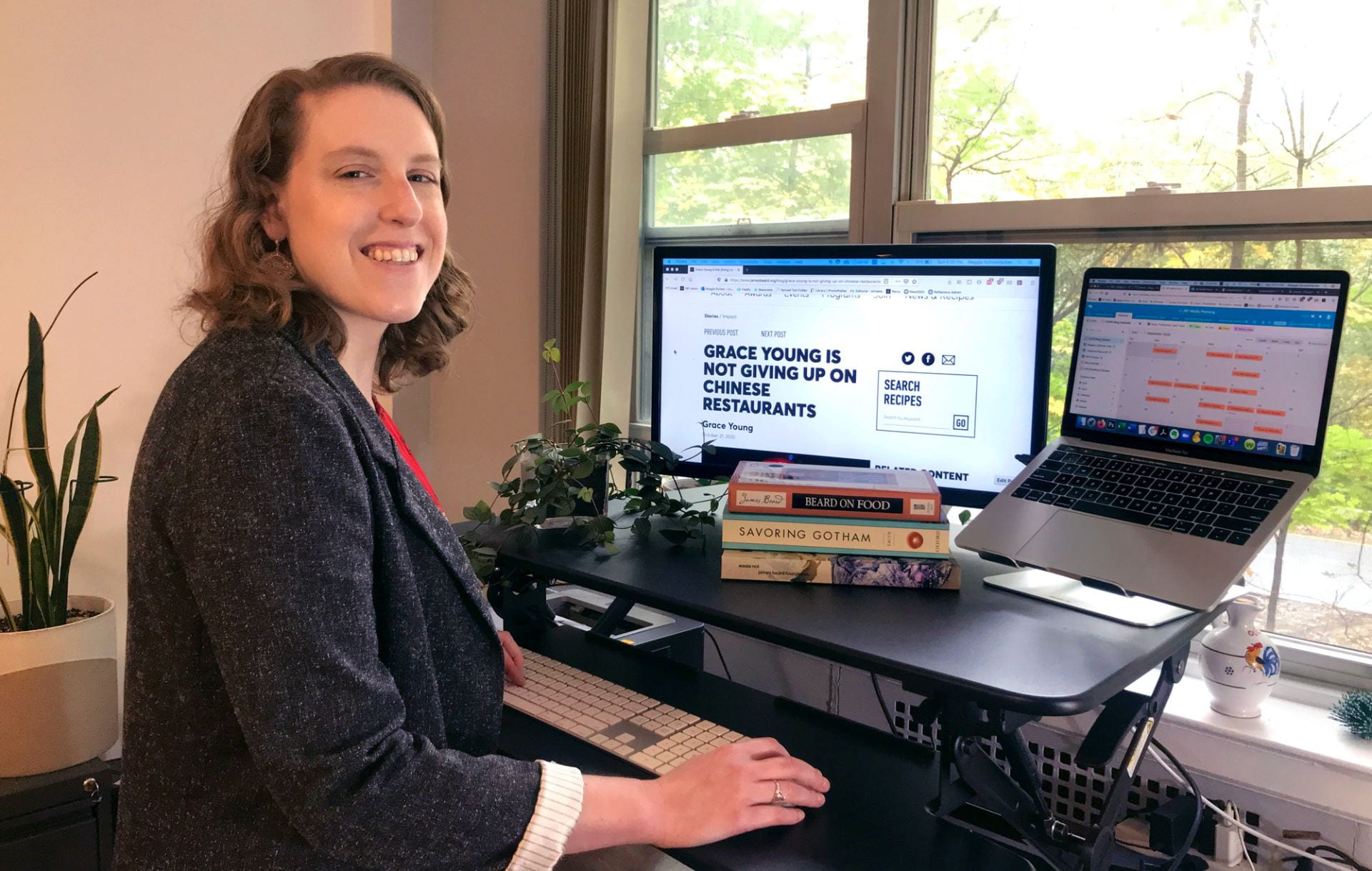
Content Manager, James Beard Foundation
New York, NY
Cinema Studies Major
I’ve been at the foundation for six years, and I oversee editorial content that publishes on our website. Post pandemic, we’ve entirely pivoted our resources towards helping independent restaurants stay open right now and eventually build back. I’ve worked on the marketing for several campaigns: the James Beard Foundation Food and Beverage Industry Relief Fund; #SaveChineseRestaurants, and the James Beard Foundation Investment Fund for Black and Indigenous Americans. #SaveChineseRestaurants is a collaboration with culinary historian and cookbook author Grace Young on a social media campaign that encourages folks to order in from their local Chinese restaurant, as Chinese-American businesses have experienced striking declines in sales due to COVID-19 rhetoric-related racism.
I started developing an op-ed series with chefs and industry professionals. Some of the most rewarding work I’ve done has been working collaboratively with somebody who’s not a professional writer, but really has a story to tell.
When I became content manager, I expanded the kind of editorial content we published. So, I started developing an op-ed series with chefs and industry professionals. Some of the most rewarding work I’ve done has been working collaboratively with somebody who’s not a professional writer, but really has a story to tell.
I’ve been really fortunate to attend and cover some of our chef-focused programs, like Chefs Boot Camp for Policy and Change. These are three-day retreats where we invite 15 chefs from across the country who are interested in doing local, state, and/or federal advocacy. They get training on how to interact with media, how to talk to Congress, and how to engage with their local communities.
As an undergrad, I wanted to work in entertainment. After college, I was at the job that I thought was going to be a launching point for me, in the story department of an animation studio. I was surrounded by super creative people, but I just was totally intellectually unstimulated in my role. I could not believe how bored I was. I made the decision to leave the industry, and it was really hard to come to terms with the fact that I was letting go of something that had been a big part of my identity.
At a competitive university like Penn, you’re encouraged to demand a lot from yourself and try to be independent and ambitious. But there is so much value in recognizing your limitations and seeing where your strengths are, and most importantly, how those strengths may evolve and grow over time. Since I made the decision to change industries, I’ve been so happy with where my career has gone—it wasn’t what I planned when I graduated from Penn, but it has been more challenging and rewarding than I could have anticipated. — October 14, 2020
